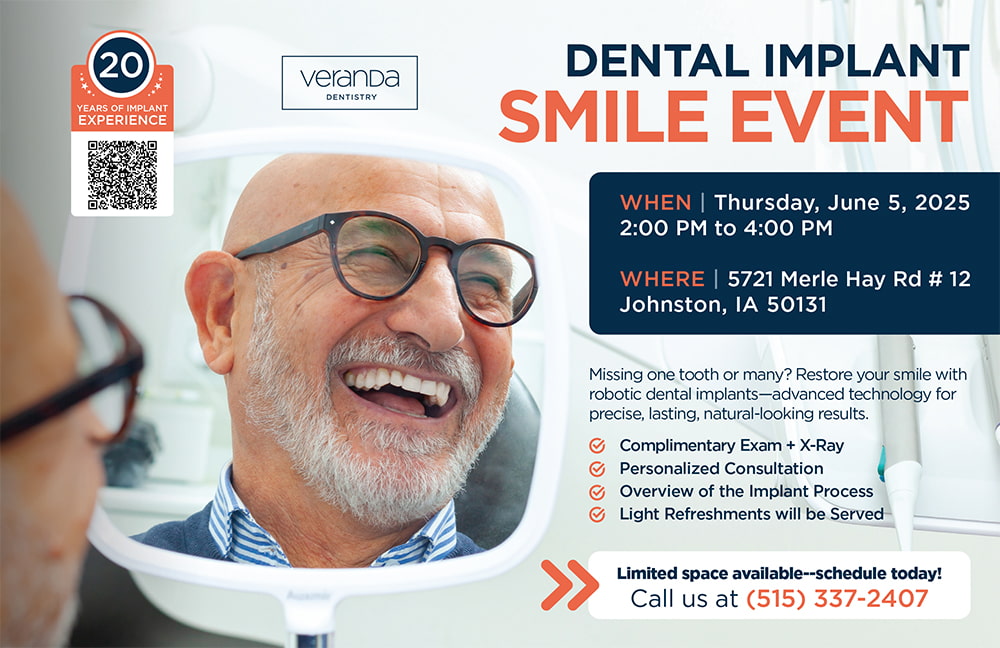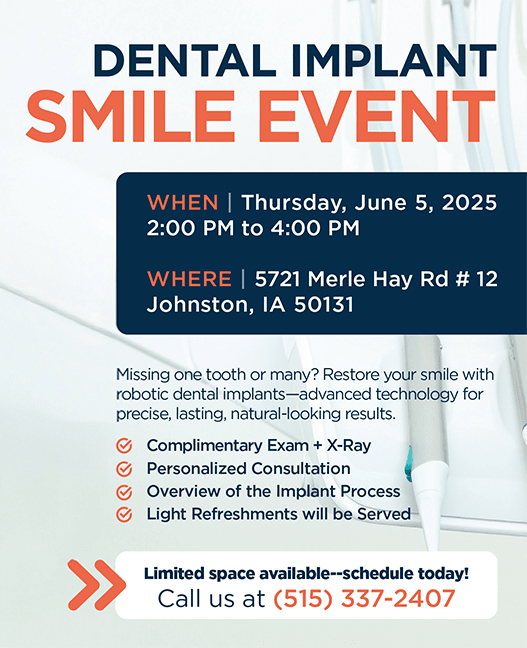Don’t Floss?! AP Implies to Skip It
By Chad Johnson, DDS, FAGD
By all means, don’t floss. You’ll be joining millions who don’t. We’re told that 93% of the population doesn’t floss, so you’ll be in good company.
The recent Associated Press article (see link at end of article) claims that the federal government requires that dietary guidelines, such as flossing—which has been a recommendation since 1979—be updated every five years, including the scientific research to prove its efficacy. One major problem is that these research requirements are not funded, which puts the burden on other private groups to produce that research. But this is the point: we’re past that, and in general, dentistry is spending our efforts trying to improve oral health in many other ways. This federal government research requirement, by the Office of Disease Prevention and Health Promotion, is the same group that promoted the food square for years, which was largely driven by special interest food lobbyists when drafted, and later changed to the food pyramid. No group wants to study the efficacy of flossing, just as much as no group wants to actually prove that breathing is essential to living. That said, we were taught in dental school that indeed, there is little large-scale research showing benefits of flossing, or brushing, for that matter. So, to introduce more chaos: find a scholarly article within the past five years (or ever) demonstrating that brushing your teeth is beneficial in any way. But alas, it does benefit you.
The surprising removal of the recommendation for daily flossing results only from a lack of scientific substance and methodology, not from a lack of impact on oral health. Previous research into benefits of flossing led to the 1979 recommendation for daily flossing by the Office of Disease Prevention and Health Promotion. But the issue arises today in that the quality of that research does not stand up to the standards necessary to garner complete scientific acceptance.
The AP looked at the most rigorous research conducted over the past decade, focusing on 25 studies that generally compared the use of a toothbrush with the combination of toothbrushes and floss. The findings? The evidence for flossing is “weak, very unreliable,” of “very low” quality, and carries “a moderate to large potential for bias.”
Medical benefits of dental floss unproven; Associated Press; Jeff Don; Aug. 2, 2016
To expand on the analogy given above regarding the importance of breathing–if a study was conducted to evaluate whether or not breathing was essential to living with too few subjects, too short of duration, was non-repeatable, or did not meet a host of other criteria it too would not stand up to scientific review. Would this mean that breathing is not important to maintain life? Of course not. It only means the scientific research that exists at the moment is unsubstantial. Further, as stated previously, the economics of such a study would be difficult to justify, let alone find a sponsor.
Despite the poor quality of the research, flossing is still critical to maintaining a healthy mouth! How do we know this? Flossing is a two-fold in its conceptual goal: preventing bone death (periodontal disease) and preventing cavities. The mouth is full of bacteria that thrive on the simple sugars present in food and drinks. These bacteria accumulate and proliferate into dental plaque that break down the carbohydrates and excrete an acidic byproduct damaging the teeth and the gums. The short term consequence of this process is dental decay and gingivitis, inflammation that surrounds the teeth. These effects can be significantly mitigated at home by using a toothbrush to remove food debris and plaque from the exposed surfaces of the teeth and using floss to remove food debris and plaque from the hidden surfaces between your teeth. Long term, the undisturbed soft dental plaque will harden into deposits called calculus (or tartar) that will further damage the gums and may result bone degradation referred to as periodontal disease. This dynamic process is influenced by many factors, so individual experiences and progression will vary, but the general pattern remains. Your dentist will be able to discuss with you the factors that will play in to your personal risk for dental decay, gingivitis, and periodontitis.
Know this: flossing costs you 3 cents per day. One filling (e.g $200) will cost you more than 18 years of daily floss. One tooth extraction is similar in cost, if that tooth were necessary to remove, due to periodontal disease. So, these articles are ambiguous—are they suggesting that we don’t floss, or are they simply saying that no one will step up to the plate and fund the research to tell us something we already know: flossing works. Lastly, since when has a governmental agency been the authority on flossing, let alone anything else?
At Veranda Dentistry, we’re not overly pushy, and we get that people typically don’t floss. For the few that do, they’re sparing themselves extra visits, that’s all we’re saying.
To investigate more of the AP article, click here: http://bigstory.ap.org/article/f7e66079d9ba4b4985d7af350619a9e3/medical-benefits-dental-floss-unproven
And other organizations that picked the article up:












